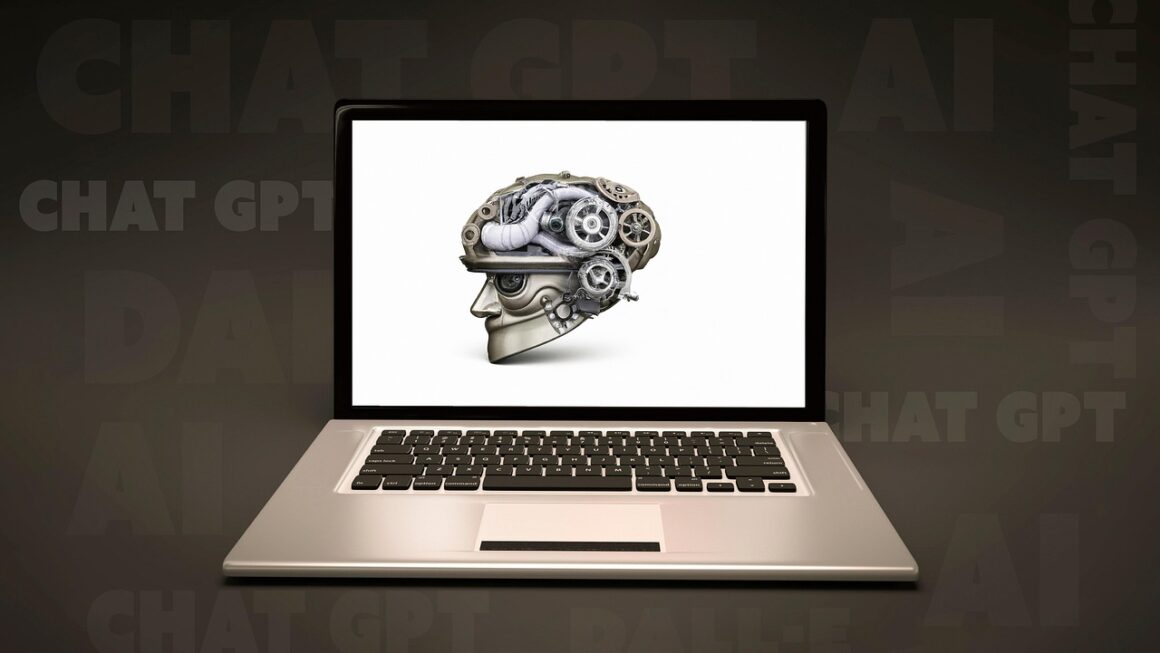AI is no longer a futuristic fantasy; it’s a present-day reality transforming the marketing landscape. From hyper-personalized customer experiences to streamlined campaign optimization, Artificial Intelligence is empowering marketers to achieve unprecedented levels of efficiency and effectiveness. Are you ready to harness the power of AI and unlock new growth opportunities? This guide will navigate you through the core applications of AI in marketing and provide actionable insights to integrate these powerful technologies into your strategies.
Understanding AI’s Role in Marketing
What is AI in Marketing?
AI in marketing refers to the use of artificial intelligence technologies to automate and improve marketing processes. This includes analyzing data, predicting customer behavior, personalizing content, and optimizing campaigns. AI leverages machine learning, natural language processing (NLP), and other advanced techniques to gain insights and make data-driven decisions, ultimately enhancing marketing ROI.
Key Benefits of AI in Marketing
Integrating AI into your marketing strategy offers several significant advantages:
- Enhanced Personalization: Deliver targeted content and experiences based on individual customer preferences.
- Improved Efficiency: Automate repetitive tasks, freeing up marketers to focus on strategic initiatives.
- Data-Driven Insights: Uncover hidden patterns and trends in customer data to inform marketing decisions.
- Predictive Analytics: Forecast future customer behavior and optimize campaigns for maximum impact.
- Increased ROI: Improve campaign performance and generate higher returns on marketing investments.
- Better Customer Experience: Create more engaging and relevant interactions, leading to increased customer satisfaction and loyalty.
AI Marketing Statistics
The rapid adoption of AI in marketing is supported by compelling data:
- According to a recent report, the AI in marketing market is projected to reach $120 billion by 2028.
- Over 80% of marketers believe that AI will revolutionize the marketing industry by 2025.
- Personalized experiences driven by AI can increase revenue by 10-15%.
AI-Powered Personalization
Personalization at Scale
AI algorithms excel at analyzing vast amounts of customer data to create highly personalized experiences. This goes far beyond simply addressing customers by their name. AI can analyze browsing history, purchase patterns, social media activity, and more to understand individual preferences and tailor content accordingly.
Examples of AI-Driven Personalization
- Personalized Email Marketing: AI can segment your email list based on individual behaviors and tailor email content, offers, and send times for each subscriber. For example, an e-commerce site might send an email recommending products similar to those a customer has previously purchased.
- Dynamic Website Content: AI can dynamically adjust website content based on a visitor’s profile and behavior. For example, a returning customer might see a personalized welcome message and product recommendations tailored to their past purchases.
- Product Recommendations: AI-powered recommendation engines analyze customer purchase history and browsing behavior to suggest relevant products they are likely to buy. Amazon’s “Customers who bought this item also bought” feature is a classic example.
- Personalized Ads: AI algorithms can target ads to specific users based on their interests and demographics. Platforms like Google Ads and Facebook Ads Manager leverage AI to optimize ad targeting and maximize ROI.
Actionable Takeaway
Start by implementing AI-powered personalization in a single channel, such as email marketing, and gradually expand to other areas as you gain experience and see results.
AI for Content Creation and Curation
Automating Content Creation
While AI cannot completely replace human creativity, it can significantly assist in content creation by automating repetitive tasks and generating initial drafts. AI tools can help with:
- Generating Blog Posts and Articles: AI writing tools can create outlines, suggest topics, and even generate entire articles based on specific keywords and prompts.
- Writing Product Descriptions: AI can automatically generate compelling product descriptions based on product attributes and specifications.
- Creating Social Media Posts: AI tools can generate social media captions, hashtags, and even create visual content like images and videos.
- Repurposing Content: AI can help you repurpose existing content into different formats, such as turning a blog post into a video script or an infographic.
Content Curation and Discovery
AI can also help you discover relevant and engaging content for your audience:
- Content Recommendation Engines: AI can analyze your audience’s interests and recommend relevant articles, videos, and other content.
- Social Listening: AI can monitor social media conversations to identify trending topics and content opportunities.
- Competitive Analysis: AI can analyze your competitors’ content strategies to identify gaps and opportunities for differentiation.
Example: Using AI for SEO Content
Use AI-powered tools to analyze keyword search volume, identify relevant topics, and generate optimized content outlines. For example, tools like Jasper.ai or Copy.ai can assist in creating blog posts that are both engaging and SEO-friendly.
AI in Customer Service and Chatbots
Enhancing Customer Interactions
AI-powered chatbots and virtual assistants are transforming customer service by providing instant and personalized support. These intelligent systems can handle a wide range of customer inquiries, resolve issues, and even make recommendations.
Benefits of AI Chatbots
- 24/7 Availability: Chatbots can provide round-the-clock customer support, ensuring that customers can get help whenever they need it.
- Instant Responses: Chatbots can provide immediate answers to common questions, reducing wait times and improving customer satisfaction.
- Personalized Support: AI-powered chatbots can personalize interactions based on customer data and preferences.
- Cost-Effective: Chatbots can handle a large volume of customer inquiries, reducing the need for human agents and lowering support costs.
- Lead Generation: Chatbots can engage website visitors and qualify leads by asking relevant questions and providing valuable information.
Practical Examples
- Answering Frequently Asked Questions (FAQs): Train your chatbot to answer common customer questions about your products, services, and policies.
- Providing Product Recommendations: Integrate your chatbot with your product catalog to provide personalized product recommendations based on customer preferences.
- Resolving Simple Issues: Empower your chatbot to resolve simple issues like order tracking, password resets, and address changes.
- Escalating Complex Issues: Configure your chatbot to escalate complex issues to human agents when necessary.
Predictive Analytics and Campaign Optimization
Predicting Customer Behavior
AI algorithms can analyze historical data to predict future customer behavior, such as purchase probabilities, churn risk, and lifetime value. This information can be used to target customers with the right offers at the right time and optimize marketing campaigns for maximum impact.
Optimizing Marketing Campaigns
AI can also be used to optimize marketing campaigns in real-time:
- A/B Testing: AI can automatically test different ad creatives, headlines, and landing pages to identify the most effective combinations.
- Bid Optimization: AI can adjust bids in real-time based on performance data to maximize ROI.
- Channel Optimization: AI can allocate marketing budget across different channels based on their performance and potential.
- Attribution Modeling: AI can analyze customer touchpoints to accurately attribute conversions to different marketing channels and campaigns.
Example: Optimizing Ad Spend
Use AI-powered tools to analyze your ad campaign performance and automatically adjust bids and targeting based on real-time data. This can help you improve your ad ROI and reduce wasted ad spend. Platforms like Google Ads and Facebook Ads Manager offer built-in AI-powered optimization features.
Ethical Considerations and Future Trends
Addressing Bias and Privacy
While AI offers numerous benefits, it’s important to address potential ethical concerns. AI algorithms can perpetuate existing biases if they are trained on biased data. It’s crucial to ensure that your AI systems are fair, transparent, and accountable.
- Data Privacy: Protecting customer data is paramount. Ensure that you comply with all relevant privacy regulations, such as GDPR and CCPA.
- Transparency: Be transparent with customers about how you are using their data and provide them with control over their privacy settings.
- Bias Mitigation: Actively work to identify and mitigate biases in your AI algorithms. Regularly audit your AI systems to ensure they are fair and equitable.
Future Trends in AI Marketing
The future of AI in marketing is bright, with several exciting trends on the horizon:
- Generative AI: AI models that can generate new content, such as images, videos, and text, will become increasingly prevalent in marketing.
- Hyper-Personalization: AI will enable even more personalized and immersive customer experiences.
- AI-Powered Automation: AI will automate more marketing tasks, freeing up marketers to focus on strategic initiatives.
- Voice Search Optimization: As voice search becomes more popular, marketers will need to optimize their content for voice queries using AI.
Conclusion
AI is transforming the marketing landscape, offering unparalleled opportunities to enhance personalization, improve efficiency, and drive better results. By understanding the core applications of AI and implementing these technologies strategically, you can unlock new levels of growth and stay ahead of the competition. Embrace AI, but do so ethically and responsibly, focusing on delivering value to your customers and building long-term relationships. As AI continues to evolve, staying informed and adaptable will be key to maximizing its potential in your marketing strategy.




